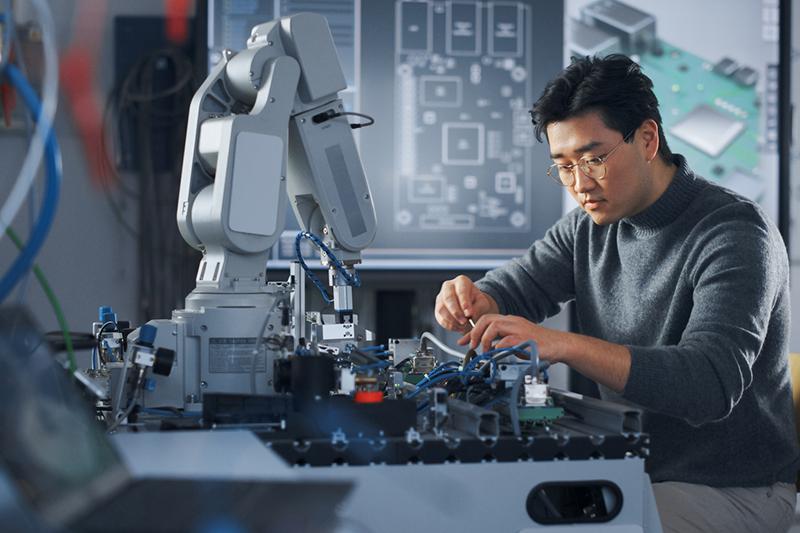In the high-stakes world of start-ups, choosing which start-up to invest in is more than just a business decision; it can change the trajectory of innovation and the economy.
The selection process can also be biased. One in three deals in the venture capital market involves a founder and investor from the same university, according to research. In other words, venture capitalists are more likely to fund start-ups with founders from their alma mater.
Amid rapid change, it is not surprising that generative artificial intelligence (GenAI) emerges as a tool to help to assess pitch decks based on innovativeness, commercial feasibility, impact of idea and capability to execute. But nor is the use of GenAI to evaluate pitch decks from submissions or start-ups new.
For a university engaging in open innovation – a field that includes start-up competition organisers, investors or venture capital firms – evaluation criteria and the dataset to train the GenAI system to support evaluation are valuable assets to keep in-house.
Increasingly, universities are taking an active role in nurturing innovation, transforming research into commercial applications. Student founders also often stay in contact with their alma maters, which translates into more collaborative relationships through incubations and accelerators. Universities, therefore, have a huge responsibility to make the evaluation of start-ups as fair as possible to ensure that limited resources are used wisely – for funding, mentorship and operational facilities – by focusing on the most promising ventures. This careful evaluation means that universities incubate the best start-ups, boosting positive impact and showing clear value to stakeholders such as government and private partners.
- A guide to cultivating a start-up culture in academia
- Not faster but fairer: tame ‘techno-solutionism’ to build inclusive futures with AI
- Why AI literacy must come before policy
When Singapore Management University (SMU) hosted the 12th Lee Kuan Yew Global Business Plan Competition – one of the largest in Asia – in September this year, it also hosted a parallel competition to show how AI-powered tools can enhance traditional expert-driven processes in start-up evaluation. Having received more than 1,500 submissions from over 1,200 universities in 91 countries, the Global Business Plan team wanted to ensure that pitch evaluation was fair – and avoided the biases humans are prone to.
During the previous edition, in 2023, the university explored the use of GenAI as a check against human bias. A collaboration with Valuer.AI, a platform renowned for its AI-driven solutions in start-up scouting and competitive intelligence, yielded an unexpected result. The AI identified a start-up that our 200 human judges had overlooked. MEDEA Biopharma from the Technical University of Munich went on to win in the pre-revenue-generating category of start-ups. It won more start-up competitions and set up a cutting-edge S2 laboratory to advance its research.
This experience taught us two things: GenAI could identify a promising start-up; and it complemented our competition judges in identifying opportunities that would otherwise be missed. For our university, our faculty would miss out on collaborating with a promising venture in the Innovation and Enterpreneurship ecosystem we have been building for the past 20 years; and our undergraduate students would not be able to work with start-up founders as interns or partners. Yes, we count past finalists as “alumni of LKYGBPC”, which offers our undergraduates valuable internship experiences.
A case study in human-AI collaboration
For this year’s competition, to seek out the below-the-radar prospects that traditional approaches may neglect, we sought to leverage the strengths of both AI and expert panels to reduce bias, improve transparency and uncover overlooked opportunities.
Aside from the main start-up competition, we also held a parallel competition to pit GenAI agents against one another. In the DueAI Challenge were 14 AI innovators or agents, many of which are start-ups evaluating pitch decks based on their proprietary rubric and criteria. Naturally, these AI agents use GenAI as a tool to prompt the pitch deck for information that will guide their rating and ranking of the start-up.
This is how DueAI was positioned as a global platform where AI agents competed and collaborated with more than 230 international judges from 46 countries to assess start-ups on criteria such as innovation, scalability, market potential and financial viability. Three criteria were used to evaluate the GenAI systems for the DueAI Challenge:
- Expert alignment: How closely AI picks match those of the international judging panel. This looks at the ratio of shared picks between the AI’s top start-ups and those chosen by the expert panel.
- Explainability and transparency: How effectively the AI tool provides fact-based insights and concise write-ups for each shortlisted start-up to justify its evaluation.
- Identifying outliers: How AI agents discover high-potential start-ups missed in initial screenings, thus expanding the field of opportunity for investment and innovation. Essentially, start-ups that are not aligned or similar to those picked by the expert panel are collected in an “outlier pool”. The rationale is: if all of or most AI agents have picked these outliers, they should be high-potential start-ups for the competition.
We found that although DueAI was not yet able to pick winners, it could sift through a large volume of pitch decks and identify “false negatives” for re-evaluation. Its ability to catch false negatives is vital due diligence for large-scale contests such as the Global Business Plan Competition, which requires significant resources and time to organise, given the geographies we reached out to.
Through the DueAI Challenge, SMU shortlisted eight start-ups that were invited to the grand finals in Singapore. Three of these start-ups were originally considered outliers, and overlooked by the human judging process, but emerged in the top eight out of 60 finalists in the grand final round.
Building trust in the start-up ecosystem
Instead of viewing “man versus machine or AI”, our experience shows we should be open-minded about how GenAI can support the human decision-making process. AI can help break down barriers and enhance how start-up opportunities are identified, invested in and supported. For universities aiming to do the same, consider starting on a small scale, identifying gaps, and iterating to improve, helping future student-founders adapt their pitches to bring their vision to life.
The Knowledge Transfer and Commercialisation unit of SMU, which manages the intellectual property derived from the university’s research and facilitates its commercialisation for societal impact, has registered trademark protection for DueAI. The university is in the process of licensing the trademark to a start-up to create DueAI Connect, a community of AI agents to support large-scale evaluation of pitch decks for investment analyses, business plan competitions and other innovation initiatives.
Having witnessed the power of GenAI as a “co-pilot” in complementing human expertise in boosting innovation and entrepreneurship, we believe in sharing its ability to foster greater collaborations between student founders and strategic partners. This will multiply opportunities for education and leadership development within the start-up ecosystem.
Tiam Lin Sze is a senior licensing adviser and adjunct lecturer in the Institute of Innovation and Entrepreneurship at Singapore Management University.
If you would like advice and insight from academics and university staff delivered direct to your inbox each week, sign up for the Campus newsletter.




comment